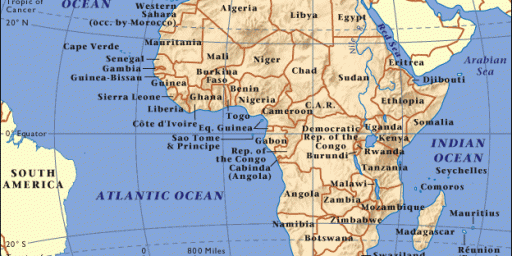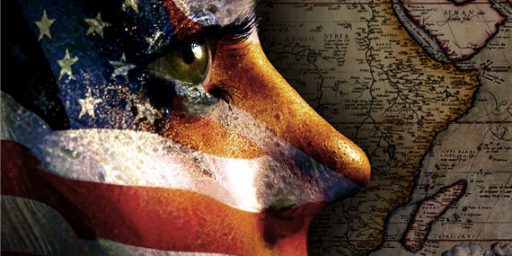Violent Protests in Burkina Faso
Via the BBC: Burkina Faso parliament set ablaze.
The conflict is over an attempt to amend the constitution to allow the long-standing president to run for re-election:
Protesters angry at plans to allow Burkina Faso’s President Blaise Compaore to extend his 27-year-rule have set fire to parliament.
[…]
Mr Compaore first took power in a coup in 1987, and has won four disputed elections since then.
The opposition has called for a campaign of civil disobedience to demand that he steps down in elections next year.
"October 30 is Burkina Faso’s Black Spring, like the Arab Spring," opposition activist Emile Pargui Pare told AFP news agency.
State television has gone off air after protesters stormed the building housing it and ransacked it, Reuters quotes a witness as saying.
Freedom House details the basics of Compaore’s time in office:
Compaoré, a former army captain, has held power since ousting populist president Thomas Sankara as an army captain in 1987. With his Congress for Democracy and Progress (CDP) party, Compaoré went on to win Burkina Faso’s first democratic elections in 1991. In 2000, two-term presidential limits were reintroduced, but the law was not retroactive, allowing Compaoré, who had already served two seven-year terms, to run for reelection again. Compaoré won presidential elections in 2005 and 2010, the last for which he was eligible under the current term-limit rules.
Freedom House rates Burkina Faso as “Partly Free” (with better scores for Civil Liberties than for Political Rights).






Potentially rather important for Sahel stability, although crickets for USA (no Ebola I suppose). the issue of Niger and general Sahel security hinges on Burkina.
Decent chance BC is clever and defuses (and avoids the Ben Ali or Mubarek mistake), but only a decent chance.